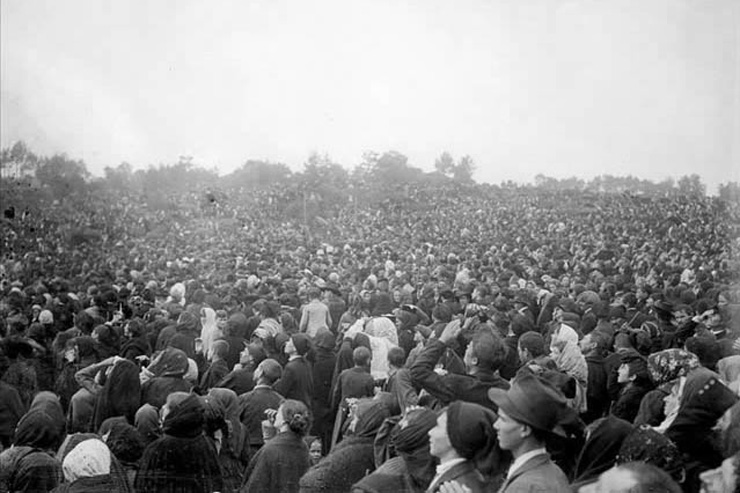 There are few among us who haven’t gone through suffering—mental, spiritual or emotional and wondered where God was in the turmoil. In his book, When God is Silent (Sophia Institute Press), Archbishop Martinez introduces us to the idea that Jesus is not gone—he is sleeping.
There are few among us who haven’t gone through suffering—mental, spiritual or emotional and wondered where God was in the turmoil. In his book, When God is Silent (Sophia Institute Press), Archbishop Martinez introduces us to the idea that Jesus is not gone—he is sleeping.
Martinez expands the idea using the example of Christ asleep in the boat on Lake Tiberias. We are assured of the love of Christ, and he explains how that love is expressed when Jesus is surrendering to His human need of sleep. Martinez writes, “With the person of Jesus, the phrase of the Song of Solomon, “ ‘I slept, but my heart was awake,’ ” is not a figure of speech used in the language of love, but a profound reality of the divine order.” Jesus uses His sleep to purify and strengthen our faith. He never leaves us. In this context it is we who have fallen asleep, not Jesus. Fear is the product of tempests in our lives. In the boat, Jesus asks the apostles, “Why are you afraid? Have you no faith?” Faith replaces fear and with trust in Jesus we find peace and our faith strengthened after the storm.
 Jesus listens and watches over us even as he sleeps. But in order to hear Him, we must learn silence—not of the ordinary outward silence, but interior silence. The culture we live in dismisses silence. We are not worthy unless we are busy, hooked up to a tech device that often intrudes on the lives of anyone around us. Consider, as Martinez writes, “the first thirty years in the life of Jesus was wrapped in impressive silence.” How could we live like that today? Silence forces reflection on our inner selves and not everyone is willing to take that step. Martinez maintains that silence is a “necessary condition for living within and not living without.” He continues that by the example of His own silences, in contemplation, in prudence, in pain, and in love, Jesus demonstrates that silence can enrich our souls, detach us from our everyday distractions and form a closer relationship with Him.
Jesus listens and watches over us even as he sleeps. But in order to hear Him, we must learn silence—not of the ordinary outward silence, but interior silence. The culture we live in dismisses silence. We are not worthy unless we are busy, hooked up to a tech device that often intrudes on the lives of anyone around us. Consider, as Martinez writes, “the first thirty years in the life of Jesus was wrapped in impressive silence.” How could we live like that today? Silence forces reflection on our inner selves and not everyone is willing to take that step. Martinez maintains that silence is a “necessary condition for living within and not living without.” He continues that by the example of His own silences, in contemplation, in prudence, in pain, and in love, Jesus demonstrates that silence can enrich our souls, detach us from our everyday distractions and form a closer relationship with Him.
To conclude, Martinez gives three paths to peace. First, he explains the exclusivity of God’s peace—it belongs to Him alone. “My peace I give to you.” These words are spoken at every Mass. Second, our Lord’s peace is profound. As Martinez writes, “Peace is plentitude; it is life.” And, third, the peace of God is indestructible.
Martinez stresses those things that are central to the development of our peace; Faith, Hope and Love. Faith that assures us that God is in control. Remembering “The Spirit helps us in our weakness; for we do not know how to pray as we ought, but the Spirit Himself intercedes for us.” God is always listening—He is as close as our breath. Hope is the antidote to our sufferings. Unfortunately, if we do not suffer there can be little to hope for. Martinez stresses that this is not earthly hope which is subject to disappointment. The hope defined here is that “holy, invincible certainty that we shall obtain what God has promised.” Love, according to Martinez, is the loftiest path to peace. And, according to St. John, “Love casts out fear.”
There is no new theology here, but what is new is the poetic prose that the message expresses. Archbishop. Martinez’s words will comfort, encourage and reinforce your faith. A mere 126 pages, it would be an ideal way to end Lent.
The Lord is my strength and my salvation
My heart has trusted in him and I am helped
He is not only with me but in me, and I in him.
—St. Francis de Sales
Luis Martinez (1881-1956) was Archbishop of Mexico City, philosopher, theologian, educator, poet and director of souls. His deeply spiritual interior life is manifested eloquently in his writings, particularly in his classic, True Devotion to the Holy Spirit.














